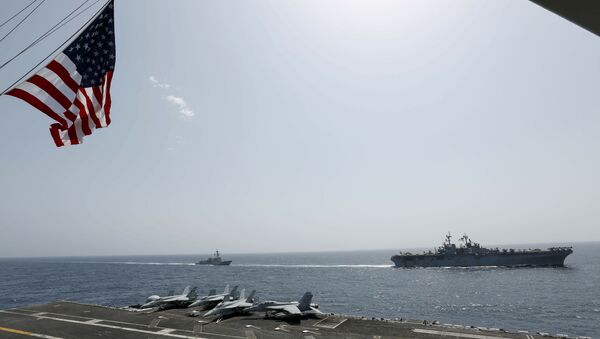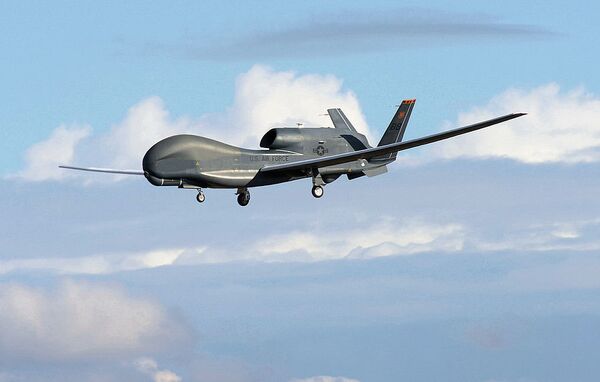Iranian government spokesman Ali Rabiei stated on 25 June that the US move to impose sanctions on Supreme Leader Ali Khamenei is essentially a "direct attack to[sic] a nation". He added that the move will only unite Iranians.
Rabiei added that if the US goes ahead with the threatened sanctions against Foreign Minister Javad Zarif, it will show that Washington is in fact not interested in any negotiations, despite its claims.
At the same time, Iran's Deputy Foreign Minister Abbas Araqchi stated, in the wake of the imposition of new US sanctions against Tehran, that the country no longer sees reasons to abide by the nuclear deal commitments unilaterally.
"With attention to the promises that have not been carried out from the European side, there is no reason left for Iran to carry out its commitments unilaterally. Iran has kept the window of diplomacy open by reducing its commitments incrementally", he said.
This was just the latest warning from Iran on reducing its commitments under the nuclear deal, after it honoured the accord for a year after the US withdrew from it and started imposing sanctions. Tehran is expected to announce another reduction in its commitments on 7 July, unless the remaining signatories to the nuclear deal find a way to protect it from the American sanctions.
The US has imposed new "hard-hitting" sanctions on Iran over its alleged "hostile conduct" on 24 June. Trump tied them with a downed US drone incident over Strait of Hormuz at first, but later revealed that they would have been rolled out eventually anyway.
New sanctions targeted Iran's Supreme Leader Ali Khamenei and those "close to him" in a bid to cut them off from any financial sources, as well as 8 senior members of Iran's Revolutionary Guard Corps. On the same day, US Treasury head Steven Mnuchin announced that Iranian Minister Javad Zarif will also be targeted with sanctions later in the week.
Trump Threatens Iran's 'Obliteration'
On the same day, US President Donald Trump threatened Tehran with a harsh response to any hostile action it might undertake against anything US-related, reiterating his earlier statements in which he promised that such attacks will be "the end of Iran".
....Iran’s very ignorant and insulting statement, put out today, only shows that they do not understand reality. Any attack by Iran on anything American will be met with great and overwhelming force. In some areas, overwhelming will mean obliteration. No more John Kerry & Obama!
— Donald J. Trump (@realDonaldTrump) June 25, 2019
The president further argued that Iran allegedly only understands "strength and power", which he promised to use if necessary, instead of "compassion", referring to the enormous American military budget in his tweet. He also slammed the approach to bilateral relations with Iran, utilised by the previous US administration led by Barack Obama, which negotiated a nuclear deal with Tehran that lifted sanctions and ensured the peaceful nature of its nuclear programme.
Trump also apparently lashed out at earlier statements by Iranian Foreign Minister Javad Zarif, who mocked US concerns that its strike in retaliation for the downed drone, could kill 150 people, by recalling that Washington murdered many more with its nuclear weapon back in 1945.
Iran's president later stated in the wake of Trump's threats that Tehran is not seeking war with the US, in line with earlier statements by Iranian Supreme Leader Ali Khamenei. But at the same time, he noted that Iran will have to defend itself if the US violates its border again as it happened on 22 June.
"If the Americans want to violate the waters or airspace of Iran again, Iran's armed forces have a duty to confront them and they will have a decisive clash", Rouhani said.
Trump's statements come as bilateral relations between the two countries took a turn for the worst after Iran downed a drone, which Tehran says violated its airspace. Foreign Minister Javad Zarif later published maps with data from the radar, proving Tehran's point.
Washington, however, insists that its UAV was flying over neutral waters of the Strait of Hormuz, when it was destroyed, releasing own maps, substantiating the claim. The US was planning to launch strikes against three Iranian targets in response to the downing, but President Trump stopped it mere minutes before the start.



